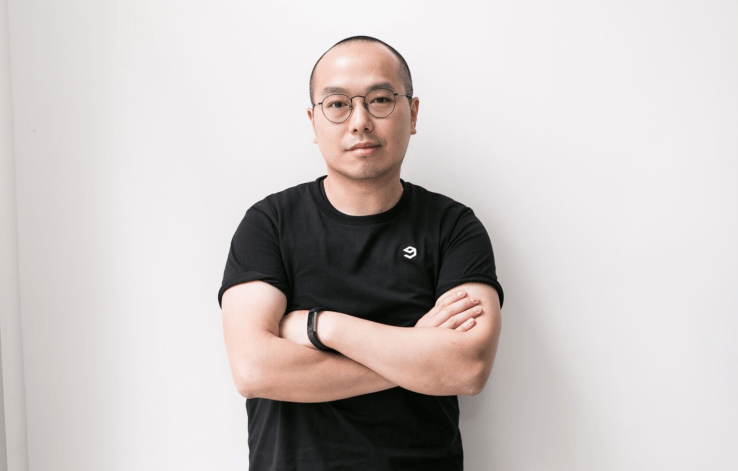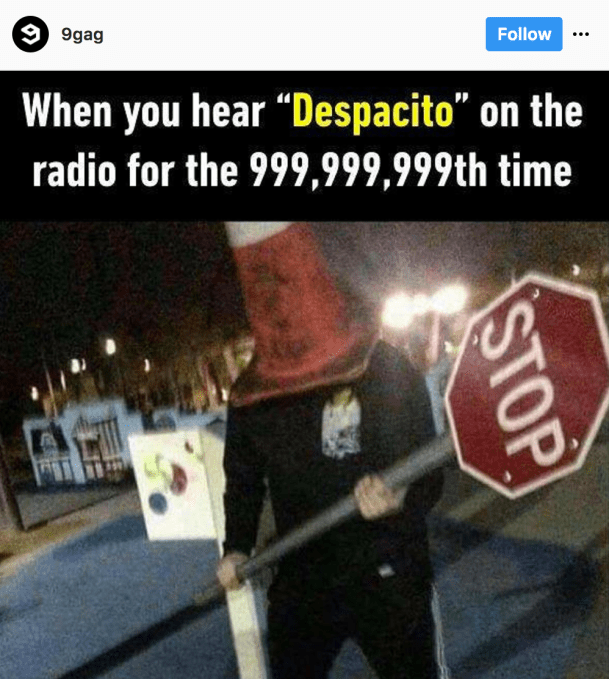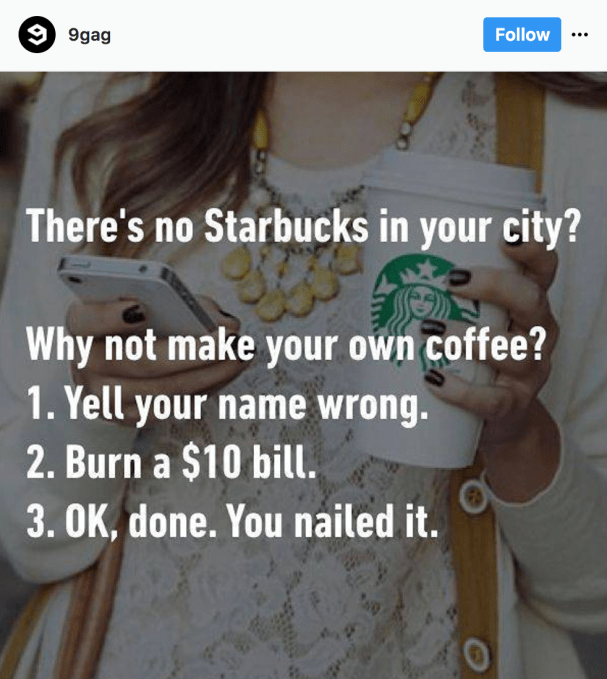9GAG CEO Ray Chan: ‘Building a healthy community is a never-ending battle’

If you enjoy getting lost in memes and social media, you’ve undoubtedly stumbled across 9GAG at some point. 9GAG is a Hong Kong-based site that hosts and distributes funny pictures, videos and memes. In terms of audience, it’s up there with content hosting and distribution sites like UNILAD and LADBible. With 41.1 million Instagram followers, 9GAG is one of the largest media entertainment brands on Instagram globally.
So what exactly goes into the operations behind a company whose sole mission is to make internet fun more accessible?
Here’s what Ray Chan, CEO and co-founder of 9GAG, and COO Lillian Leong, had to say about audience development, global humor and what it’s like to run a media startup from Hong Kong. Our conversation has been edited for length and clarity.
TC: 9GAG is one of the most-followed, most-engaged-with sites and social accounts across Facebook and Instagram. How did it get started?
RC: We started the website in 2008. The original thought we had was, “Could we just release funny content to look at?” At that time, Facebook was not that popular. We just made our own website with funny pictures and funny videos on it. We thought about it as a side project for a few years, never as a business. It was more like a hobby at the beginning. But then we joined 500 Startups in 2011, and then raised funding. After that, we joined Y Combinator in 2012.
TC: You have 41.1 million followers on Instagram and 36.5 million page “likes” on Facebook. Which social platforms are the most interesting to you right now?
RC: When you look at social media, it always has ups and downs. I think Instagram is definitely still very interesting. Stories and live videos are something our team keeps an eye on. If you talk about all the accounts, we are in the top 30 most-followed. If you take away celebrities, then we are number six.
TC: 9GAG is popular on American social networks, but many of these networks are restricted in China. Do you try to target Chinese users, despite that your main audience exists elsewhere?
RC: Since we are based in Hong Kong, we are able to see what’s popular in China. But Hong Kong is different from other parts of China. It’s very easy for us to understand the U.S. culture. But the big players in the Southeast Asian markets are Line and Kakao in South Korea. Most of them are backed by Chinese internet companies, and somehow we also see a trend in that a lot of U.S. apps are inspired by them. The Chinese apps like WeChat can do a lot more.
But we haven’t actively targeted the Chinese market. We have 150 million monthly active users, but a lot of these users are not in China. Most of our users are from the U.S. and Germany. Our site has not yet launched in China. But it looks like the second biggest video adoption market is China. YouTube is blocked, so we are all desperately seeking video content.
TC: Do humans or algorithms determine what’s trending on 9GAG.com? How do you choose what to further distribute on your social channels?
RC: All of our content is submitted by users. Sometimes they create their own content, which we encourage. Sometimes they find content from other websites. But we always give credit back to the original creator.
We rely heavily on our community to up-vote and down-vote the content, and we also look at the engagement of the post. For example, if you get a lot of comments and a lot of shares, and then we pick it, it will rise to a more popular page, which we call trending. We have a small team of eight humans who pick what to share with everyone on social media platforms.
TC: What metrics do you use to define success?
RC: We look at Facebook Insights and Instagram metrics. We also measure video views. But what’s more interesting is that we have kind of this secret mission of introducing content from one part of the world to another part of the world.
The mainstream entertainment is always from Hollywood, but there’s some interesting content and good creators from Japan, from Thailand, from the Philippines. We want to help them, too, because we feel like they are under-resourced. That’s where we, as a platform, want to do more.
TC: How would you describe the similarities in your audience’s sense of humor across different regions of the world?
RC: For our website, the top countries are the U.S., Germany, and number three is the Netherlands. Then France. So it’s pretty international. One thing we discovered is that across different countries, people and cultures, users still understand each other’s humor. The jokes shared by one person in one country are still funny to someone in a different country based not on their location but on their life experiences.
One example is that when students are graduating from college, they are focused on the same things no matter what country they are from. They care about getting a job, family problems, and romantic relationships, too. College students relate to each other about exams and homework. They face similar challenges in their life, right? That’s why they can resonate with people in other countries, and they find it amazing that, “Hey, how come you’re from Brazil but understand my pain?” I think this humor helps us have an international community. Experiences like these change your life, your view, and your sense of humor.
TC: Humor is great escapism, but the internet is a resource for millennials to learn about politics, technology and current events, too. Do you think that humor is more engaging than tragedy?
LL: Both humor and tragedy are popular genres in entertainment. Comparatively, it’s easier and quicker for humor to thrive in the internet space, particularly in social/viral videos. Humor needs a twist to build up the joke. Tragedy needs a context and plot, which requires a longer time to build up storytelling. We see humor as a lifestyle, embraced by our global audience. Fun isn’t necessarily in conflict with politics, technology and timely events.
TC: Humor is subjective, especially across a global audience like yours. Jokes can easily verge into racist and sexist territory. How do you determine when content is inappropriate or falls under the category of hate speech?
RC: That’s a tough challenge. Humor is very personal. Some people have a very bad sense of humor. It also depends on their culture. If you are from Germany, you may be more sensitive to Nazi jokes than a person from China is. Sensitive topics come up, but what we see is that our users completely understand that. They are pretty open, they don’t have a very strong sense of discrimination. They are really supportive and open towards other cultures. If you take away the content, they’re smart people and learn from a healthy community.
TC: What would you do if someone created a meme making a joke about terrorism and it got a bunch of up-votes on 9GAG?
RC: First of all, these are user created. So you will have content like hate speech and discriminatory posts slip through the system. Some of this content is stolen from other sites. But our active community reports that content. In our system, our attendants look at it and they determine, “Hey, this is something offensive.” Then we just remove it. It’s kind of like a rule for society. You can’t limit content, but you can respond very quickly to take it down before it hurts people. Building a healthy community is a never-ending battle.
TC: What’s it like being a startup based in Hong Kong? How would you describe the accessibility of venture capital and tech talent?
RC: Challenging. But if it’s easy, it’s not fun. If you want capital and talent hard enough, you can still get it in Hong Kong. But you may have to work harder than the people in Silicon Valley. I see it as a fun challenge. In Hong Kong the running cost of a company is generally lower. If you’re building hardware it will be easier for you to go back to China to get prototypes. In San Francisco there’s tons of talent and easy access to capital, but the cost is very high. I don’t think any city or any country is a perfect place to build a startup.
I feel like in Hong Kong, people are generally very entrepreneurial. Hong Kong is a very small city but it’s a global city, a top finance city in the world. So the living standard is very high. I think it proves that people in Hong Kong are very good at problem solving. But we do have teammates from other parts of the world, but we are intentionally small. Nowadays, you don’t necessarily need a big team to build a big impact.
It’s two sides of the same coin though, challenge and opportunity. When startups succeed, it helps students know that after graduation, they don’t have to work for the government or work in a bank. There are other interesting opportunities for them in a different industry.
TC: What’s next for 9GAG?
RC: In terms of features, we’re incorporating video uploads and views, where previously we were focused on pictures and GIFs. We are interested in using tagging features. We also want to build a larger network of creators. But the goal is to expose people to different types of fun. Right now, not everybody knows 9GAG. We want to make it so that when millennials think about fun on the internet, they think about 9GAG instantly.

